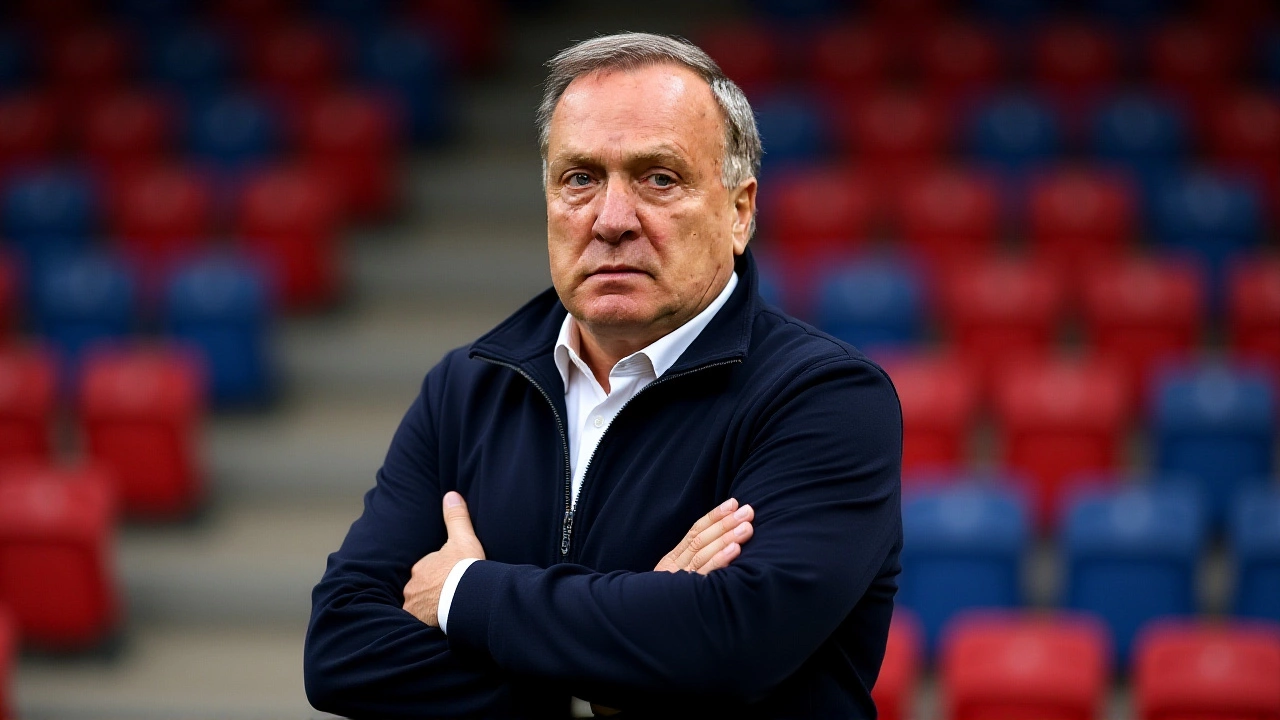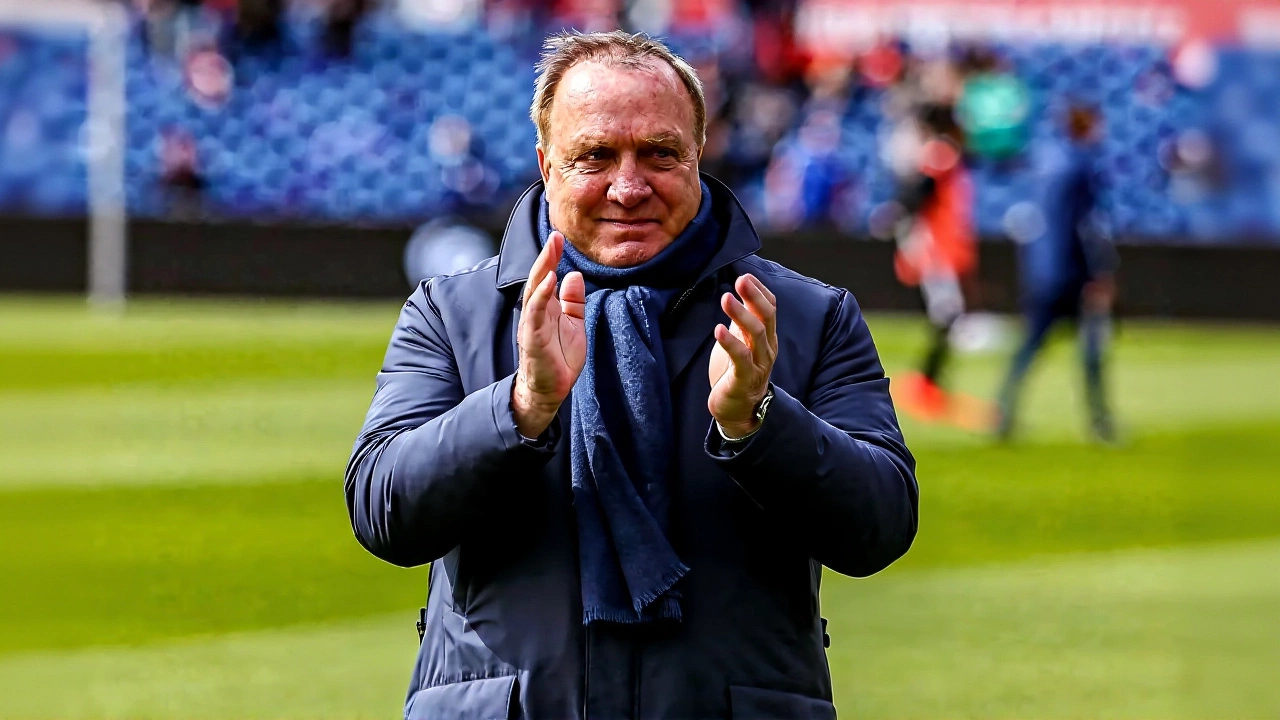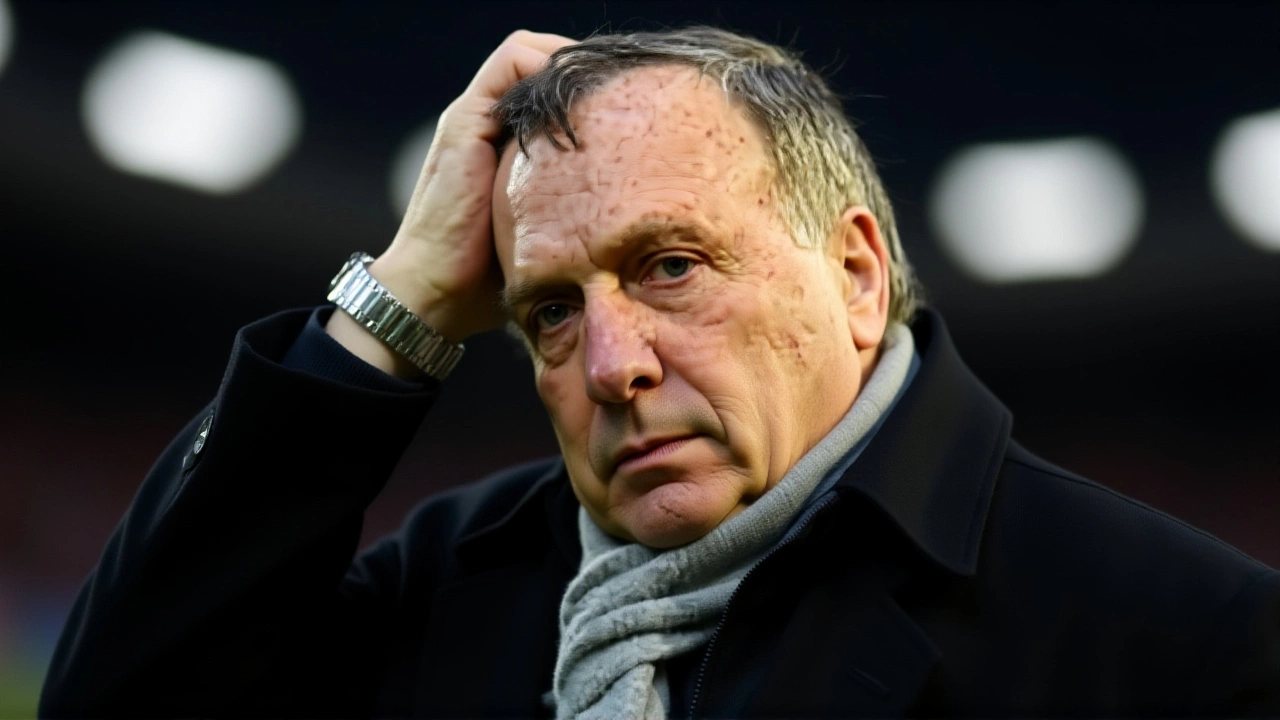At 78, Dick Advocaat isn’t just coaching a team—he’s rewriting history. On a tense Tuesday night in 2025, his Curaçao national football team held Jamaica to a 1-1 draw in a Concacaf qualifier, sealing automatic qualification for the 2026 FIFA World CupUnited States, Canada, and Mexico. The result wasn’t just a win—it was a revolution. For the first time ever, the smallest nation by population to reach a World Cup finals—just 160,000 people on a Caribbean island—will stand on football’s biggest stage. And the man guiding them? A Dutch veteran who’s been coaching longer than many of his players have been alive.
The Record That Wasn’t Supposed to Be Broken
The previous record holder for oldest World Cup manager was Germany’s Otto Rehhagel, who led Greece at the 2010 World Cup at 71 years and 317 days. Advocaat, born in 1947, will be nearly seven years older when the 2026 tournament kicks off in June. That’s not just breaking a record—it’s shattering it. Rehhagel’s Greece was a Cinderella story. Advocaat’s Curaçao? It’s a miracle with a pension card.Before this, Curaçao had never made it past the second round of Concacaf qualifying. Their best finish in any regional tournament was third place in the 2017 Caribbean Cup. Their stadium holds 8,500 fans. Their national team budget? Less than some Premier League clubs spend on a single midfielder’s weekly wage. And yet, here they are. ESPN called it “arguably his greatest against-all-odds glory”—and they’re not wrong.
A Career Spanning Three Decades
Advocaat’s managerial journey reads like a football atlas. He managed the Netherlands national team three separate times, led Russia to Euro 2008, coached South Korea and Belgium, and even had a brief, turbulent stint with Serbia. He won the UEFA Champions League as an assistant at PSV Eindhoven in 1988. He took Rangers to a domestic double in 2003. He’s coached in the Middle East, Asia, and now the Caribbean.But his time in England? That’s where the human side of Advocaat shines brightest. He arrived at Sunderland Association Football Club in March 2015 with the club in freefall. His first match? A 1-0 loss to West Ham. His first win? A 1-0 Tyne-Wear derby against Newcastle—on April 5, 2015. A moment of pure, unscripted joy in a season that would ultimately end in chaos. By October, after just eight Premier League games in 2015-16, he resigned with Sunderland 19th in the table. He’d won four, drawn six, lost nine. The club was sinking. But he stayed longer than anyone expected. He brought in players he knew—Jeremain Lens, Ola Toivonen—because trust mattered more than headlines.

Why This Matters Beyond the Record
Curaçao’s qualification isn’t just a feel-good story. It’s a seismic shift in global football. For decades, the World Cup has been dominated by nations with populations in the tens of millions. Now, a tiny island with no professional league of its own, no youth academies on the scale of Europe’s, has done what giants couldn’t. They’ve outworked, outsmarted, and outlasted.Advocaat didn’t come here for glory. He came because the federation asked. He saw potential in a team that had been written off. He brought discipline, tactical clarity, and a quiet confidence that didn’t need flash. His squad? Mostly semi-pros—teachers, mechanics, students—who train after work, fly economy to qualifiers, and play with something money can’t buy: pride.
This is football’s soul. Not the billionaires, not the transfer fees, not the social media metrics. It’s a 78-year-old man, still standing on the touchline, still barking instructions, still believing.

What’s Next for Advocaat and Curaçao?
The 2026 World Cup draw will happen in December 2025. Curaçao will be in Pot 4—the lowest seeding—but that doesn’t matter to Advocaat. He’s already said he’ll be on the sideline for every match. There’s talk he might retire after the tournament. But knowing him? He’ll stay until the final whistle, even if it’s the last one he ever hears.His legacy? Not just the record. It’s proving that football isn’t about size. It’s about spirit. And sometimes, the oldest man in the room has the clearest vision.
Frequently Asked Questions
How did Curaçao qualify for the 2026 World Cup despite having such a small population?
Curaçao finished top of their Concacaf qualifying group in 2025 with 13 points from six matches, including a crucial 1-1 draw against Jamaica that sealed their spot. They won only two games outright but drew four, showing remarkable resilience. With a population of just 160,000, they’re the smallest sovereign nation ever to qualify, surpassing previous record-holders like Iceland (340,000) and Trinidad and Tobago (1.4 million).
What makes Dick Advocaat different from other veteran managers?
Unlike many aging coaches who rely on nostalgia, Advocaat adapts. He’s studied Curaçao’s players individually, tailored his tactics to their strengths—quick transitions, set-piece efficiency—and emphasized mental toughness over technical perfection. He speaks Dutch, English, and some Papiamento, building trust across cultural lines. His calm demeanor under pressure has steadied a team that’s never faced this level of expectation.
Has any other manager led teams from so many different continents?
Yes, but no one has managed national teams across five continents with sustained success. Advocaat has coached in Europe (Netherlands, Belgium, Russia, Serbia), Asia (South Korea, UAE, Iraq), and now the Caribbean (Curaçao). He’s the only manager to have led national teams in the Netherlands, Russia, and now Curaçao—all in the World Cup qualifying cycle. His global footprint is unmatched in modern football.
Why did Advocaat return to management after retiring from Sunderland in 2015?
He retired on May 24, 2015, but changed his mind after just seven days. The reason? He missed the game. Not the money, not the spotlight—but the challenge. He took a break, then returned to coach Iraq in 2021. When Curaçao’s federation reached out, he saw another puzzle to solve. At 78, he’s not chasing titles—he’s chasing meaning.
What impact could Curaçao’s qualification have on Caribbean football?
Curaçao’s success could trigger a funding surge across the region. Smaller nations like Suriname, Guyana, and the British Virgin Islands now believe qualification is possible. FIFA has already signaled increased investment in Concacaf development programs. For the first time, Caribbean youth might see a path from local pitches to the World Cup—not just as fans, but as players.
Is Dick Advocaat planning to retire after the 2026 World Cup?
He hasn’t said yes or no. But those close to him say he’s treating this like his final chapter. He’s already begun mentoring Curaçao’s assistant coaches and drafting a long-term development plan for the federation. Whether he’s on the bench in 2027 or watching from the stands, he’s ensured his legacy won’t fade with his retirement.
